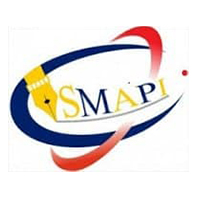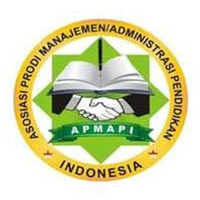School Leadership Practices in the Conflict Region of South Thailand - Pattani
DOI:
https://doi.org/10.21831/jump.v3i1.39441Keywords:
school leadership, leadership in a conflict regionAbstract
This study aims to gain an understanding of the leadership practices of the principals in the conflict region of South Thailand – Pattani. It was a qualitative case study. This study was located at two private Islamic schools in the Yala province, Southern Thailand. Data were collected through interviews and observation. The informants were 14 in total consisting of two principals, two deputy principals, and ten teachers from studied schools. The collected data were analyzed following the interactive model proposed by Miles, Huberman, and Saldana. Audit trail and member checks were used to check the credibility of the data. The results show that building a good relationship with communities and working together to develop a safe environment at school are considered to be important. The principals also motivate students to go to school. In order to make students enjoy studying at school, the principal put a serious effort to provide adequate learning facilities and school infrastructure and to develop the teaching competencies of their teachers. Furthermore, they assure the student parents that it is safe to allow children to go to school.
References
Brooks, M. C. (2015). School principals in Southern Thailand: exploring trust with community leaders during conflict. Educational Management Administration & Leadership, 43(2), 232-252. Doi: 10.1177/1741143213513191
Brooks, M. C. & Sungtong, E. (2015). "˜We still have bombings': school principals and insurgent violence in Southern Thailand. International Journal of Leadership in Education, 1-29. Doi: 10.1080/13603124.2015.1059489
Bueto, U. (2010). Gerakan muslim-melayu di thailand selatan 1973-1980 M. (Gerakan perlawanan minoritas terhadap mayoritas). Yogyakarta: Skripsi Jurusan Sejarah Kebudayaan Islam Fakultas Adab dan Ilmu Budaya Universitas Negeri Sunan Kalijaga Yogyakarta.Veithzal Rivai & Deddy Mulyadi, Kepemimpinan dan perilaku organisasi, Edisi 3, (Jakarta: Rajawali Pres, 2013), hal 7.
Bush, T. (2007). Educational leadership and management: theory, policy, and practice. South African Journal of Education, 27(3), 391-406.
Bush, T. (2011). Theories of educational leadership and management (4th ed.). London: Sage.
Bush, T., & Glover, D. (2003). School leadership: Concepts and evidence. Nottingham: National College for School Leadership.
Clarke, S., & Wildy, H. (2004). Context counts: Viewing small school leadership from the inside out. Journal of Educational Administration, 42(5), 555-572.
Creswell, J. W. (2019). Research design: Pendekatan kualitatif, kuantitatif, dan mixed. Yogyakarta: PT Pustaka Pelajar.
Earnest, J. 2013. "School leadership in the confict-affected north and east." In School level leadership in post-conflict societies: The importance of context, eds. Simon Clarke and T. A O'Donoghue. Florence: Taylor & Francis, 64–77.
Fathy, A. (1994). Pengantar sejarah Patani. Alor Setar: Pustaka Darul Aman.
Gronn, P. & Ribbins, P. (1996). Leaders in context: Postpositivist approaches to understanding educational leadership. Educational Administration Quarterly, 32(3), 452-473.
Hallinger, P., & Heck, H. R. (1998). Exploring the principal's contribution to school effectiveness:1980-1995. School Effectiveness and School Improvement:An International Journal of Research, Policy and Practice, 9 (2), 157-191.
Hasbullah, M. (2003). Asia tenggara konsentrasi baru kebangkitan islam. Bandung: Fokus Media.
Ibrahim, S. (2002). Sejarah kerajaan Melayu Patani. Universitas Negeri Malaysia: Malaysia.
Leithwood, K., & Levin, B. (2010). Understanding how leadership influences learning. In P. Peterson, E. Baker, & B. McGaw (Eds.), International Encyclopedia of Education (3rd ed., pp. 45–50). London: Elsevier, Ltd.
Madmarn, H. (1999). The pondok & madrasah in Patani. Malaysia: Penerbit Universiti Kebangsaan Malaysia.
Miles, M. B., Huberman, A. M., & Saldana. J. (2014). Qualitative data analysis. A methods sourcebook (3rd ed). Los Angeles: Sage.
Muzani, S. (1993). Pembangunan dan kebangkitan islam di Asia Tenggara. Jakarta: LP3ES.
Nkengbeza, D. (2016). School leadership role in a conflict and post-conflict environment school reconstruction as a professional learning community. Open Journal of Social Sciences, 4, 70-79. Doi: http://dx.doi.org/10.4236/jss.2016.48009
O'Donoghue, T. & Clarke, S. (2010). Leading learning: Process, themes and issues in international contexts. London, New York: Routledge.
Pherali, T. (2016). School leadership during violent conflict: rethinking education for peace in Nepal and beyond, Comparative Education, 52(4). Doi: 196910302003121001
Pitsuwan, S. (1989). Islam di Muangthai nasionalisme melayu masyarakat Patani, terjemah Hasan Basri, Jakarta: LP3S.
Raihani (2017). Exploring Islamic school leadership in a challenging Southern Thailand context. Studia Islamika, 24(2), 271-294. Doi: 10.15408/sdi.v24i2.4608
Sugiyono. (2015). Metode penelitian pendidikan pendekatan kuantitatif, kualitatif, dan r&d. Bandung: Alfabeta.
Downloads
Published
How to Cite
Issue
Section
License
Authors who publish with this journal agree to the following terms:
- The copyright of the accepted for publication articles shall be assigned to Jurnal Manajemen Pendidikan (JuMP) as the publisher of the journal. The intended copyright includes the rights to publish articles in various forms (including reprints).
- Jurnal Manajemen Pendidikan (JuMP) maintain the publishing rights of the published articles.
- Authors are permitted to republish or disseminate published articles by sharing the link/DOI of the article at Jurnal Manajemen Pendidikan (JuMP). Authors are allowed to use their articles for any legal purposes deemed necessary without written permission from Jurnal Manajemen Pendidikan (JuMP) with an acknowledgment of initial publication to this journal.











